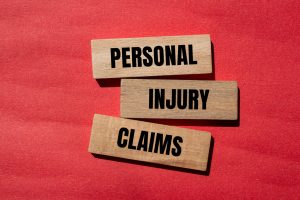Becoming a nationally known and respected Trial Lawyer is not easy; not only must you work hard to gain the best outcome for your clients, but you must push past competition, win trials others consider unwinnable, and face uphill battles and great difficulties in order to ensure justice is always served. We speak with Nick Rowley, who manages to achieve the best for his clients, while striving to change the personal injury sector. His passion for his work is evident in this insightful interview, where Nick touches on common issues he sees in his industry, why insurance companies and corporations never face up to serve justice and what is key behind connecting with the jury.
Who are the clients you advise day to day and what are the dominant issues you deal with?
As a trial lawyer I work on behalf of victims of serious injuries, professional negligence, and wrongful deaths. I am not a lawyer that is often found in a fancy office sitting behind a desk or in a conference room. Instead, I am most often found in a courtroom trying a case or at the home of a client spending time with them and their family, helping them get ready for the next trial. The people I represent need somebody who is going to care about them and spend time with them. I try many more cases than most who call themselves trial lawyers, and I win by caring about and connecting with my clients.
What actions or compensation is usually available to your clients suffering from industrial diseases?
Money is the only justice available in the civil cases I handle. Insurance companies and corporations are always the payers of the verdicts and settlements I win for my clients. They are controlling the litigation and the driving decision makers as to whether or not my clients receive compensation; unfortunately, insurance companies rarely want to do the right thing and pay out what is due.
With over 15 years’ experience in this sector, have you seen a significant increase in industrial disease-based personal injury claims? To what do you attribute this?
Yes, I have seen an increase. As corporations and insurance companies become stronger and stronger and get their politicians to pass laws that protect their conduct and to limit their liability and damages exposure, they get away with more and more resulting in more people getting hurt. The talc cases against Johnson and Johnson are a perfect example of this.
How does your firm face the increasing competitiveness in the personal injury sector?
We work hard to not be in any competition. There are some really great law firms in our country and we are proud to be one of them. We tend to take more cases to trial than most any other plaintiff firms in the country. Over a half of our cases come from other law firms who know what we do in the courtroom. Attorneys can advertise all they want but courtroom results are what speak the loudest. We are known as a team of trial lawyers who stand up for people and give them a voice they otherwise wouldn’t have. We take cases to trial that other lawyers or law firms would not take or would otherwise settle cheap. We get to know our clients on a personal level and by doing so, we truly understand what they are feeling and dealing with on a daily basis. Our client testimonials speak for themselves and when you win as consistently as we do, which is because of how we care and the work that we put in it, we don’t have to compete to get business. Unfortunately, we are sometimes in the position where we have to turn cases away.
What alternative aspects do you consider for your clients under the influence? What different challenges do these cases pose?
It depends on the case: we don't represent people who were under the influence and operating a vehicle or piece of machinery. But if our clients were under the influence of drugs or alcohol in a setting where that was OK and not a violation of the law, then we will look at the case and be honest with the judge and jury about whether that makes the individual comparatively at fault for what happened to them. Sometimes the mere fact that a person was under the influence of alcohol, prescription drugs or marijuana does not have any bearing on liability in the case
As a Thought Leader in your field, how are you developing or implementing new legislation or strategies surrounding personal injury?
Lawmakers are often in bed with insurance company executives, lobbyists, and other special interest groups fighting to limit the amount that injury victims can recover. I have a simple proposition for these corrupt lawmakers, which is that if they are going to limit and cap what injury victims can recover in a case, then be fair and also cap/limit what it is that insurance companies can charge policyholders for insurance. If there are going to be limitations, then do it the way Iowa did it and cap cases that don’t involve death or permanent life altering injuries. Do not enforce restrictions that never get adjusted to reflect inflation. The cap in California did absolutely nothing to reduce insurance rates or help the medical profession, and instead, the cap that was passed in 1976 resulted in an increase in patient injuries, because there were fewer lawyers willing to take cases and police the profession and acts of negligence. Medical negligence is a leading cause of death in California, and children and the elderly suffer the most as a result of the caps. 41 years later, the insurance companies are making a killing and the $250,000 cap from 1976 has never been adjusted or increased to reflect inflation. Not one politician or the Appellate or Supreme Court has the courage to change it. It's despicable and a horrible injustice. If we are going to limit the power of juries to decide damages, then limit insurance company profits in our country. Or, lastly to the politicians and Judges and Justices who support and enforce caps, when you or your family member gets injured, maimed, or killed, you tell me how much the insurance company should be required to pay and what the value of life is to you, or your family member, and be okay when you are treated cheap and have the wrongdoers thumb their noses at you. Limiting damages does nothing to benefit our society; the research has proven that the only ones that benefit from limiting damages are insurance companies and big corporations, which now have more power than people. I do not believe that politicians and lobbyists should be able to limit the decision-making power injustice of a jury. I am constantly fighting for the rights of people and against legislation that benefits the insurance industry in corporate America to the detriment of injury victims and families.
You deliver multiple keynote addresses nationwide on your revolutionary approach to discovering and telling the human story; what are three things you consider key for ‘connecting with the jury’?
In law school and at most law firms they teach you to not take cases personally and to not get personally involved with the case. I believe in the opposite. That is the number one key; the second is that you should not agree to handle a case that you are not willing to stand in front of a judge and jury on. Number three is that you need to get to know your client and care about them as a family member, because that is what you would want if somebody was representing you or your family.
As A Thought Leader, can you share what you think makes you ‘Outstanding Lawyer of the Year’?
Consistently winning in the courtroom on cases that other lawyers would not have the courage to take to trial or which would've been settled for a lot less money. My willingness to commit to standing in front of a jury and telling the stories of the people I represent at each trial is life or death for me. When I win a case, I don’t celebrate, I thank God and move on to the next case for a person in need.
When dealing with high-net cases, how do you ensure the emotions associated with traumatic personal injury claims keep you ahead of your game?
When I am representing an injured human being, the only thing on my mind is fighting for them to get the justice they deserve. I live, breathe, and dream about the case I am handling.
Is there anything else you would like to add?
For a while, the trial lawyer was a dying breed. I am intent and have worked hard on changing that. Our numbers are growing strong. Change and the days of reckoning are coming for corporate America and the insurance industry and corrupt politicians. The jury trial method of obtaining justice was the last stand against an elitist society controlled by lobbyists, corporate America and insurance companies. America is waking up. I am 40 years old, have tried 130 cases and I have another 30 or 40 years of doing this ahead of me and perhaps most importantly, I love what I do.
Nicholas Rowley
Trial Attorney
Many consider Nicholas C. Rowley to be the most accomplished trial lawyer of his generation. He has extensive courtroom experience representing victims of serious injuries and medical malpractice, especially those who have suffered traumatic brain injuries, spinal injuries, and chronic pain. In 2009 and 2010, the Consumer Attorneys Association of Los Angeles (CAALA) named Nick as a finalist for its prestigious “Trial Lawyer of the Year” award. Nick was also recognized by the Los Angeles Daily Journal for winning a “Top Verdict of 2010” for his $31.6 million jury verdict for the victim of a traumatic brain injury. In 2012, Nick was a finalist for the “Consumer Attorney of the Year” award, given by CAOC (Consumer Attorneys of California). In 2009, the Consumer Attorneys of San Diego awarded Nick its “Outstanding Trial Lawyer” award. In 2013, Nick was honoured with the organization’s top award – “Outstanding Trial Lawyer of the Year”. Nick is the author of the book ‘Trial By Human’, where he candidly shares his approach that brings brutal honesty and humanity into the courtroom.
Carpenter, Zuckerman & Rowley was founded on the principle that justice for injured people is more important than insurance company profits. CZR is one of the largest law firms in the State of California exclusively dedicated to the representation of injured people. Because of our size and our strength, CZR has the resources to match the firepower of big insurance companies which do everything in their power to try to get a discount on the payment of legitimate claims. Carpenter, Zuckerman & Rowley will work with you on a contingency fee arrangement. If there is no recovery, you pay no fee. CZR is dedicated to the pursuit of justice. We will never settle for anything less than the maximum compensation for your injuries. CZR can arrange for you to see top medical specialists. We can help you receive the medical care you need in order to return to the life that you had before you were injured.




















